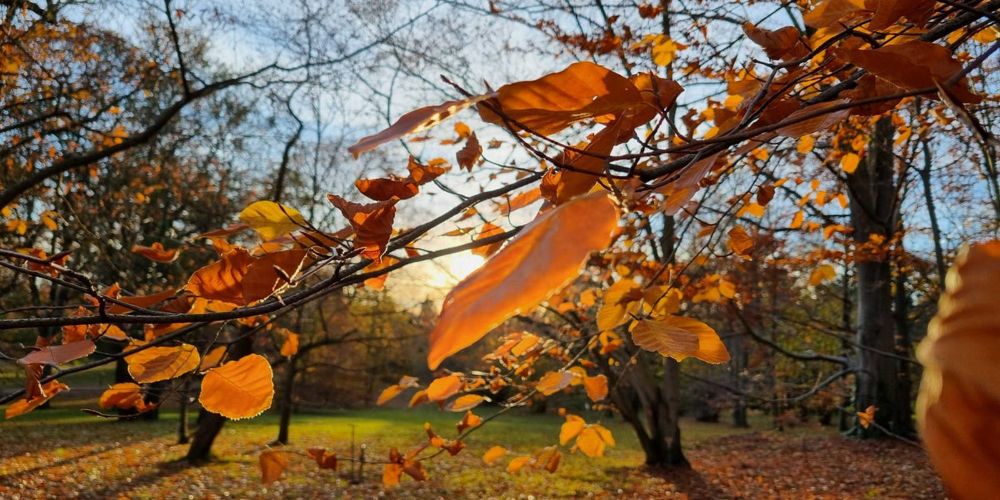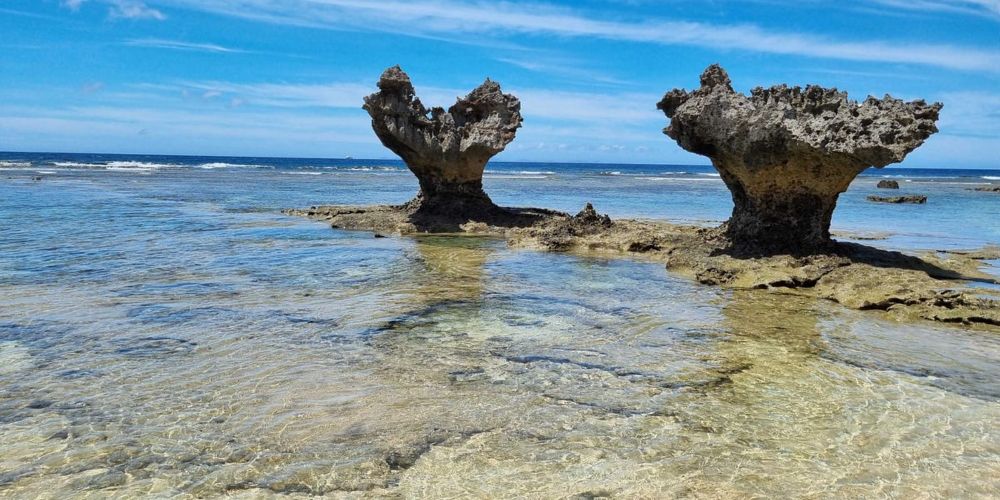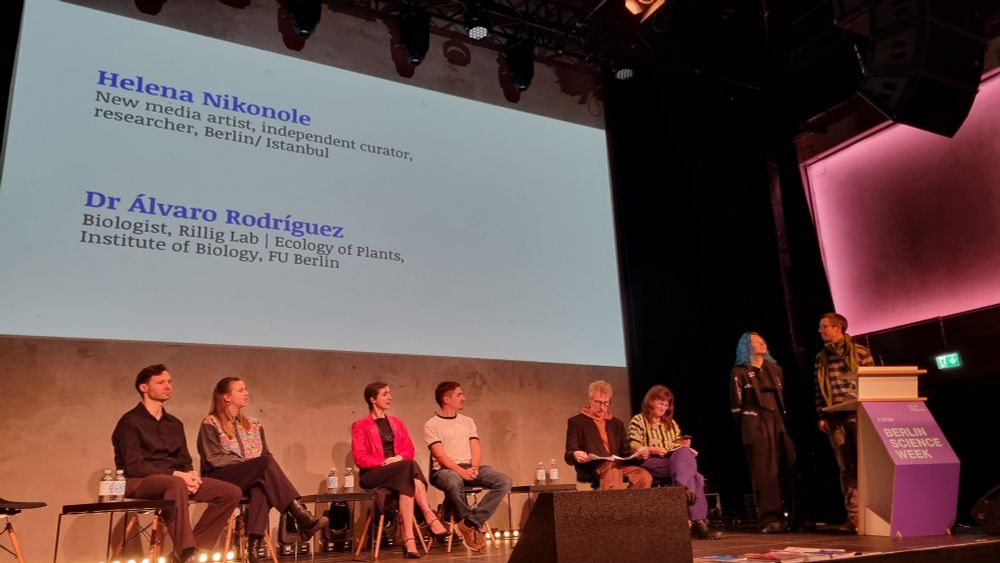
Global change, soil, fungi, environment, microplastic, biodiversity 🧪
https://www.youtube.com/@mrillig
https://www.youtube.com/@lifeinthesoil
rilliglab.org
https://matthiasrillig.substack.com
Maybe I should do more rants or more stats/ experimental design topics? 😅
open.substack.com/pub/matthias...

Maybe I should do more rants or more stats/ experimental design topics? 😅
open.substack.com/pub/matthias...
Roy et al. ISME J
Microbial interactions between climate warming and antimicrobial resistance threaten soil carbon storage and global health
academic.oup.com/ismej/articl...

Roy et al. ISME J
Microbial interactions between climate warming and antimicrobial resistance threaten soil carbon storage and global health
academic.oup.com/ismej/articl...
Artists becoming involved in the scientific process: at the experimental design stage
@artlaboratoryb.bsky.social
matthiasrillig.substack.com/p/artists-be...

Artists becoming involved in the scientific process: at the experimental design stage
@artlaboratoryb.bsky.social
matthiasrillig.substack.com/p/artists-be...
(D, $)
«Der Boden und seine Bewohner werden völlig unterschätzt»
www.nzz.ch/wissenschaft...

(D, $)
«Der Boden und seine Bewohner werden völlig unterschätzt»
www.nzz.ch/wissenschaft...
Six actions for ecologists in times of planetary crisis
www.nature.com/articles/s41...
Six actions for ecologists in times of planetary crisis
www.nature.com/articles/s41...
Acid and antibiotic stress suppresses soil microbial carbon use efficiency via fungal proliferation: Mechanistic insights from microbial community dynamics
www.sciencedirect.com/science/arti...

Acid and antibiotic stress suppresses soil microbial carbon use efficiency via fungal proliferation: Mechanistic insights from microbial community dynamics
www.sciencedirect.com/science/arti...
Friendship in academia. One of my most popular newsletters this year.
matthiasrillig.substack.com/p/friendship...

Friendship in academia. One of my most popular newsletters this year.
matthiasrillig.substack.com/p/friendship...
What is your take on all this?
matthiasrillig.substack.com/p/thinking-a...

What is your take on all this?
matthiasrillig.substack.com/p/thinking-a...
New policy brief out in SCIENCE @science.org

New policy brief out in SCIENCE @science.org
I'm proud to be #HighlyCited in three different fields this year. My awesome lab and collaborators made it possible, thanks so much!

I'm proud to be #HighlyCited in three different fields this year. My awesome lab and collaborators made it possible, thanks so much!
@cp-trendsmicrobiol.bsky.social Spotlight from @dromius.bsky.social on @cp-cellhostmicrobe.bsky.social paper from Zhong Wei/Xingang Zhou with @mrillig.bsky.social @mvanderheijden.bsky.social
www.cell.com/trends/micro...

Acid and antibiotic stress suppresses soil microbial carbon use efficiency via fungal proliferation: mechanistic insights from microbial community dynamics.
Another collab with friends at Fudan Univ (different ones)....
Will share details once available
Acid and antibiotic stress suppresses soil microbial carbon use efficiency via fungal proliferation: mechanistic insights from microbial community dynamics.
Another collab with friends at Fudan Univ (different ones)....
Will share details once available
Multiple global change stressors boost soil greenhouse gas emissions worldwide
Will share details once available; a collaboration with friends at Fudan University & elsewhere
Multiple global change stressors boost soil greenhouse gas emissions worldwide
Will share details once available; a collaboration with friends at Fudan University & elsewhere
Microplastic and drought influence the positive effect of plant diversity on plant biomass production
A collaboration among former 3 postdocs in my group. Will share details once available.
Microplastic and drought influence the positive effect of plant diversity on plant biomass production
A collaboration among former 3 postdocs in my group. Will share details once available.
Xiang et al.
Global Meta-Analysis Integrated with Machine Learning Assesses Context-Dependent Microplastic Effects on Soil Microbial Biomass Carbon and Nitrogen | Environmental Science & Technology
pubs.acs.org/doi/10.1021/...

Xiang et al.
Global Meta-Analysis Integrated with Machine Learning Assesses Context-Dependent Microplastic Effects on Soil Microbial Biomass Carbon and Nitrogen | Environmental Science & Technology
pubs.acs.org/doi/10.1021/...
Number and dissimilarity of soil amendments influence soil properties and plant communities in a greenhouse experiment
Will share open-access link once available
Number and dissimilarity of soil amendments influence soil properties and plant communities in a greenhouse experiment
Will share open-access link once available
Ajaz et al.
Maximum entropy networks show that plant–arbuscular mycorrhizal fungi associations are anti-nested and modular
w/ Tancredi Caruso
nph.onlinelibrary.wiley.com/doi/10.1111/...

Ajaz et al.
Maximum entropy networks show that plant–arbuscular mycorrhizal fungi associations are anti-nested and modular
w/ Tancredi Caruso
nph.onlinelibrary.wiley.com/doi/10.1111/...
Mitchener et al.
Kosmos: An AI Scientist for Autonomous Discovery
arxiv.org/abs/2511.02824

Mitchener et al.
Kosmos: An AI Scientist for Autonomous Discovery
arxiv.org/abs/2511.02824
Up on the stage also the lab's @alvarordr.bsky.social and artist Helena Nikonole, who gave a presentation on their planned interaction.
Organized by our friends at Art Laboratory Berlin.

Up on the stage also the lab's @alvarordr.bsky.social and artist Helena Nikonole, who gave a presentation on their planned interaction.
Organized by our friends at Art Laboratory Berlin.
Could this work? do you know of any good examples?
matthiasrillig.substack.com/p/tiny-exper...

Could this work? do you know of any good examples?
matthiasrillig.substack.com/p/tiny-exper...
berlinscienceweek.com/programme/ch...

berlinscienceweek.com/programme/ch...
Suzgun et al. in Nature Machine Intelligence
Language models cannot reliably distinguish belief from knowledge and fact
www.nature.com/articles/s42...

Suzgun et al. in Nature Machine Intelligence
Language models cannot reliably distinguish belief from knowledge and fact
www.nature.com/articles/s42...

Developing a predictive science of the biosphere requires the integration of scientific cultures
@bjenquist.bsky.social et al.
www.pnas.org/doi/full/10....

Developing a predictive science of the biosphere requires the integration of scientific cultures
@bjenquist.bsky.social et al.
www.pnas.org/doi/full/10....


